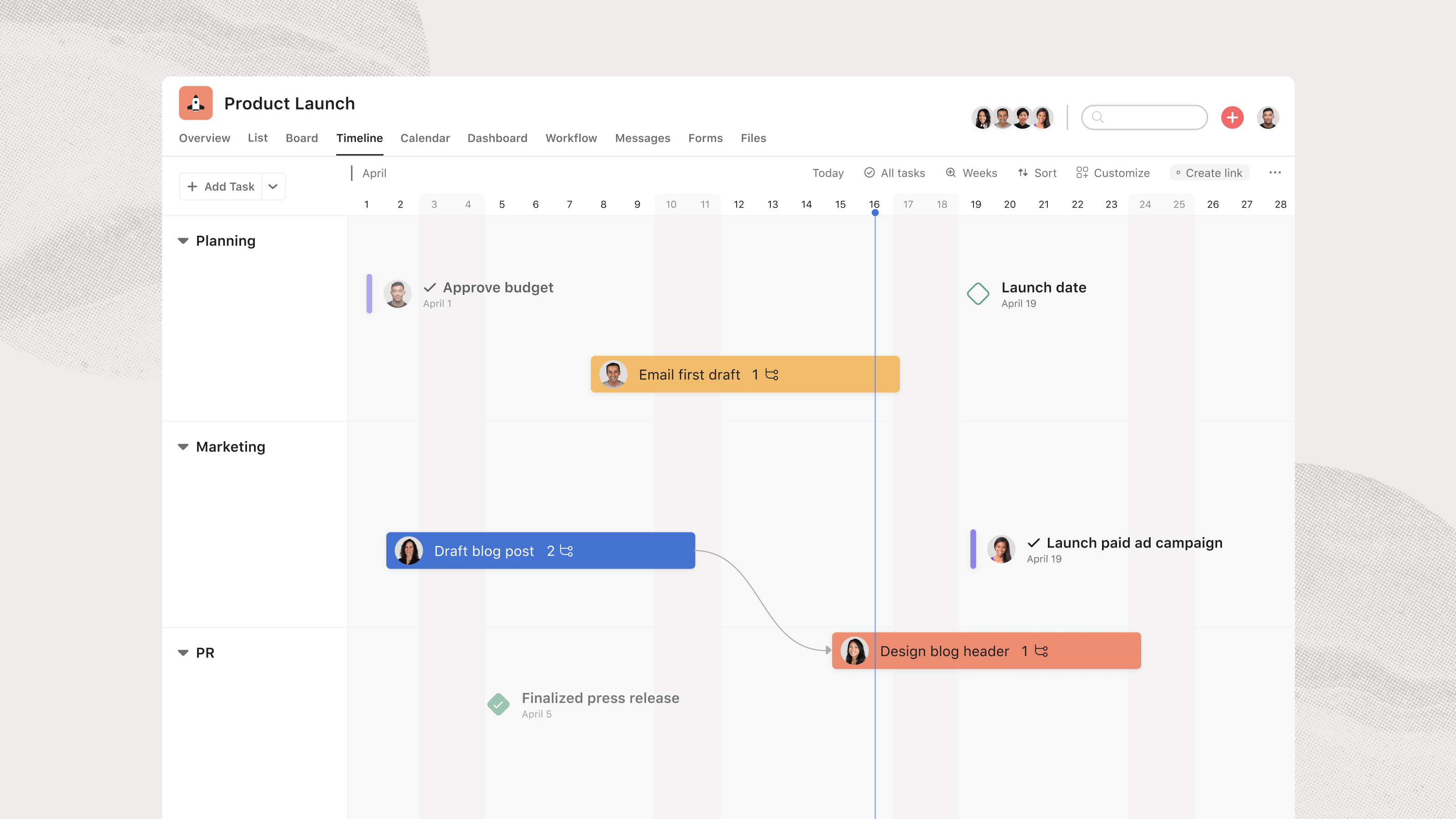Without looking at your business objectives and setting up a long-term strategy, projects can derail and potentially go horribly out of scope. Using strategic project management is an essential process that will help keep your business on track and help your business plan, execute, and control its projects.
Strategic project management involves aligning projects with the overall business strategy to achieve organizational goals effectively. Successful strategic project management requires a systematic approach incorporating best practices, methodologies, and tools to ensure project success.
This guide will explore the benefits of strategic project management, best practices, and software tools to help you manage your projects effectively.
Why use strategic project management for your business?
As a business owner, you will do anything to keep your business successful and profitable. Because if it is neither of those things – what’s the whole point of having a business in the first place?
However, to grow your business and remain (or become) profitable, you must be able to manage all of your projects successfully and scale and pivot along the way. This is where strategic project management comes into play.
Strategic project management focuses on the big picture we discussed earlier and the goals that must be achieved. This type of strategy focuses on long-term goals and not day-to-day tasks. It involves creating a plan, setting objectives, and monitoring and controlling progress.
Benefits of strategic project management
If you don’t use strategic project management because you think that your business is chugging along okay, and you are hitting all your metrics – think again. Using strategic project management comes with many benefits you could miss out on if you don’t implement them now. Some benefits of using strategic project management include:
Better Alignment with Business Goals: Strategic project management helps align project goals with overall business objectives, ensuring that projects contribute directly to the organization’s success.
Improved Communication: This type of operational tracking facilitates effective communication among project stakeholders and team members, fostering a shared understanding and commitment toward achieving common goals.
Increased Efficiency: Using a structured approach when everyone is on the same page and the team is aligned for better resource allocation and decision-making. This leads to increased efficiency and productivity.
Better Risk Management: By taking a strategic approach, project managers can identify potential risks early on and implement immediate measures to minimize the impact on the project’s outcome.
Improved Project Outcomes: Strategic project management will lead to better project outcomes when used correctly. These positive outcomes were from following up on tasks and ensuring that projects are completed on time, within budget, and to the satisfaction of all stakeholders.
5 Key steps for strategic project management
If you have ever seen a project get “into the weeds” and struggle to get back out–it’s clear that not all project management steps were followed. While there are often missteps along the way, if you follow a specific set of steps through each of your projects, you will see better success in the long one.
While these are not all the steps to follow for a successful project, they are some of the most important and best practices you can implement to see the best results.
- Define Clear Objectives: Before starting any project, define clear objectives and align them with the overall business strategy.
- Develop a Project Plan: A well-developed project plan ensures that all project stakeholders are on the same page and everyone knows their roles and responsibilities.
- Establish a Communication Plan: Communication is key to successful project management. Establish a communication plan informing all stakeholders of project progress, changes, and risks.
- Manage Risks: Identify potential risks early on and develop a risk management plan to minimize their impact on the project’s outcome.
- Monitor and Control Progress: Regularly monitor project progress and make adjustments as necessary to keep the project on track.
Best software for strategic project management
From tracking communications to monitoring the progress of your project, there are many moving pieces for a successful strategic plan. To ensure projects don’t go off the rails and out of scope, you don’t pay for two projects – you need strategic planning software to keep you on track and accountable. Some of the best software tools for strategic project management you can use to keep track of your projects include:
1. Hive
Hive is a powerful project management software made by users, for users. It has powerful capabilities and tools to help managers track all of the tasks and moving pieces within their strategic projects. With Hive, you can collaborate with your team, manage tasks, track time, and monitor project progress. Hive’s collaboration features also enable businesses to collaborate seamlessly with their teams, share files and communicate effectively.
With Hive Goals, the app’s built-in goal-setting tool, you can track progress towards your business goals and integrate Hive with other platforms to make sure you are targeting strategic initiatives and maximizing efficiency across all teams. While Hive is a powerful project management software, it’s also intuitive and easy to use, making it the perfect productivity platform to meet the strategic needs of businesses of all sizes. Start a free 14-day trial of Hive today.
2. Asana

Asana is a popular project management tool that provides a range of features to help you manage projects effectively. It has a highly user-friendly interface and checks all the boxes to track projects and check in with team members in real-time. With Asana, you can create and assign tasks, set deadlines, and track progress. Asana also offers customizable reports that you can fine-tune for your specific needs.
3. ClickUp

This is another fantastic platform to use for strategic project management. ClickUp also provides project templates, which businesses can use to create new projects quickly and easily. These templates are designed to help companies get started with their projects quickly without extensive planning and preparation.
In addition to task management and project templates, ClickUp provides calendars and time-tracking tools. These tools help businesses manage their schedules and track time spent on tasks, essential for effective project management.
4. Monday.com

With its user-friendly and intuitive interface, the collaborative environment created by Monday.com enables team members to assign tasks, establish project plans, set due dates and dependencies, communicate in real-time, share files, and more. Monday.com provides users with productivity features to streamline workflows, enhance cross-team collaboration, and optimize time and resource management.
5. Wrike

Wrike is a project management company with comprehensive features tailored for strategic project monitoring. Wrike has built-in time tracking, advanced reporting, and resource management features that make it more suitable for larger teams working with complex, multi-stage projects. Wrike also offers a variety of integrations with other tools, such as CRM systems, ERP systems, and BI tools. This can help teams to streamline their workflow and automate tasks while targeting their strategic goals and projects. Wrike has a free plan with limited capabilities. Their most popular plan starts at $24.80 per month/user, but you can get great features under a lower tier called “Team” for $9.80 per month/user.
Strategic project management is essential for organizations to achieve their business objectives effectively. By implementing best practices and using the right software tools, project managers can successfully manage projects and ensure that they are completed on time, within budget, and to the satisfaction of all of all project stakeholders.










